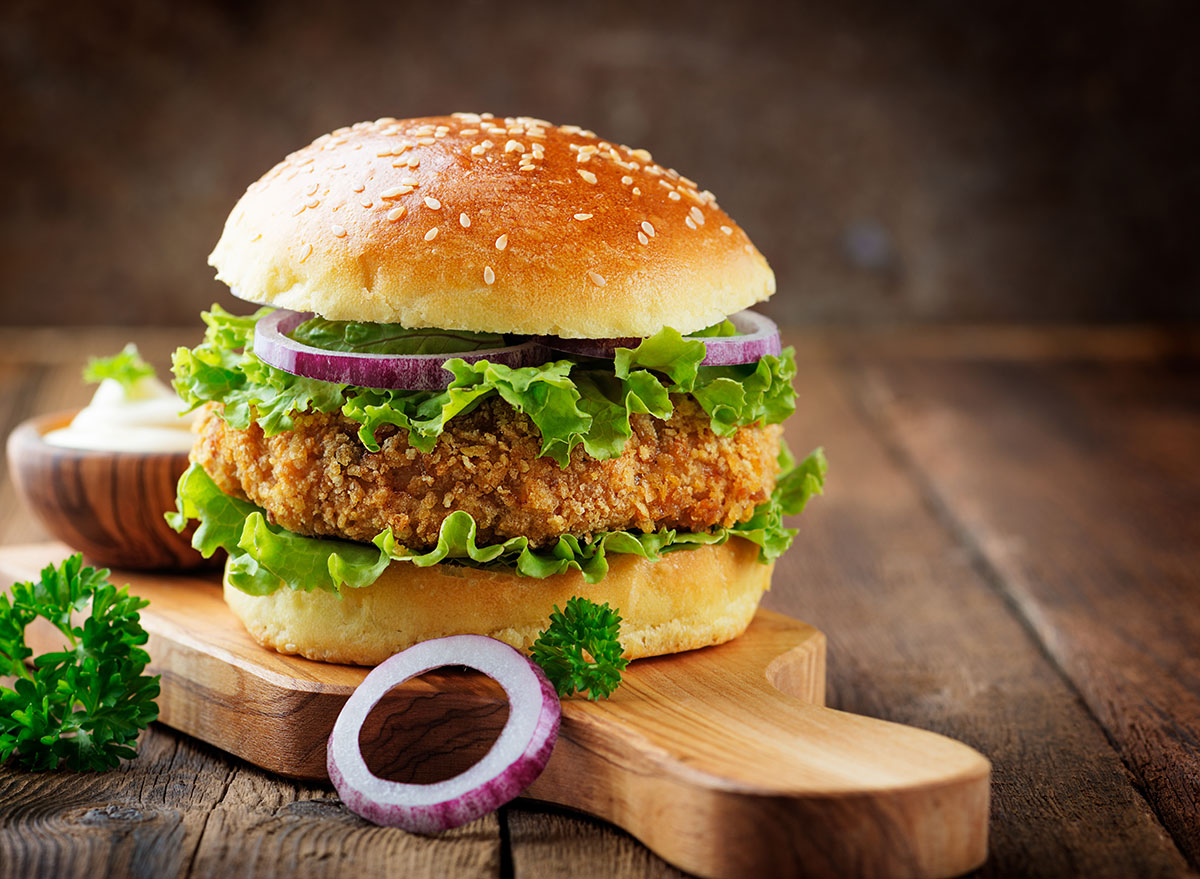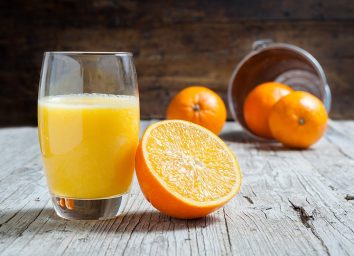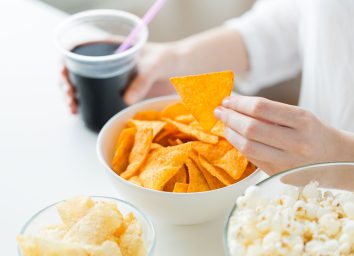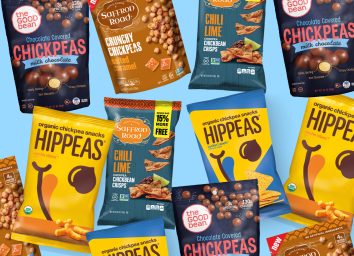Americans Indulge the Most in Junk Food on This Day of the Week

In some cases, people who think about changing their eating habits will likely hold off until a new week begins. While it’s good to have a starting point and goals, this “start on Monday” mentality can cause people to indulge quite a bit beforehand. It’s a vicious yo-yo dieting cycle that experts and nutritionists see over-and-over again with clients, so it’s not surprising that Sunday is the day of the week that Americans indulge in junk food. Sunday marks the end of the weekend, and for some, the appointed “end” of their unhealthy eating habits.
Even data from the 2020 Uber Eats Cravings Report show this to be true. According to their report, Sunday is the day that they see an increase of requests for “extra crispy” food, confirming that Americans truly do love to take “self-care Sunday” seriously. While this data does not claim why Americans particularly request extra crispy food on Sundays, based on this “start on Monday” dieting mentality (and Americans coping with the Sunday Scaries, which is a common name used to refer to work anxiety that sets in at the end of the weekend), it all starts to align.
Though the idea of having indulgent food on Sunday may seem malicious toward your health, it’s actually not that true. There’s quite a bit of research that shows how cheat meals can help you stay on track for your diet. It’s a matter of indulging properly and not giving in to the yo-yo dieting mentality.
How to stop yo-yo dieting, but still enjoy a cheat meal
If you’re one craving “extra crispy” food on a Sunday, don’t get down on yourself about it. In fact, a cheat meal can help you stay on track for your weight loss goals. According to an in-depth look at cheat meals by Healthline, “cheat meals can be effective for some to reduce overall caloric intake, as long as you’re careful not to overdo it on cheat days.”
The first thing to do is to calculate a calorie goal for yourself. It may seem intimidating to have to count your calories every day. However, many studies (including this one published by BioMed Central) do prove that taking in more energy (calories) than your body type is meant to take in will result in weight gain. However, if you eat within a specific calorie range for your body type, you will be able to see weight loss results simply because you aren’t overeating.
Now, this does not mean restricting yourself on a diet. Many studies have also proven that food restriction can cause your body and metabolism to shut down. Your body goes into a “starvation mode,” which means it will produce less leptin. According to WebMD, this is the hormone that tells your brain your body has enough fat for normal metabolic processes. If you’re not giving your body enough calories and restricting your eating, it won’t burn off calories at a normal rate as a way to save energy.
Plus, we all know where food restriction will lead. When you start restricting, your body will release ghrelin, a hormone that tells your body just how hungry you are. With more of that hormone, you will feel hungrier, and likely find yourself indulging in more cheat meals than you care to realize. Hence the vicious cycle of yo-yo dieting.
Instead of restricting your food, write out a meal plan full of delicious, healthy foods that will keep you within your calorie range. By filling your daily meals with all kinds of healthy foods you love (like healthy carbs, proteins, monounsaturated fats, and fiber-filled foods), you’ll be able to keep within that calorie range and not feel so hungry all the time!
This means that when Sunday rolls around and you’re ready for an “extra crispy” fried chicken sandwich, you don’t have to feel bad about it. You can enjoy it because you planned around that cheat meal, and didn’t feel like you were ever restricting yourself so you can “earn” it later. This means you can officially avoid that vicious”start on Monday” behavior for good.
For even more healthy eating tips, be sure to sign up for our newsletter.








